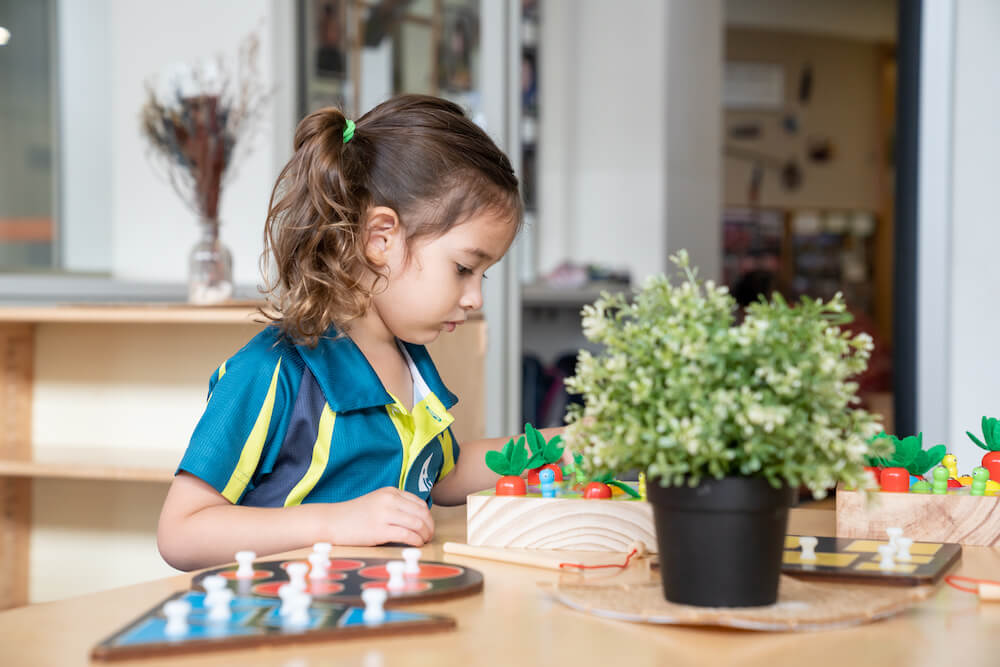The Reggio Emilia Approach and Why It Benefits Your Child
The Reggio Emilia approach is an internationally recognised educational philosophy that places the child at the centre of the learning process. Developed after World War II in the town of Reggio Emilia, Italy, this child-centred, play-based approach has gained widespread popularity for its ability to foster creativity, curiosity, and independent thinking in young children.

What is the Reggio Emilia Approach?
The Reggio Emilia philosophy is based on the belief that children are naturally curious and capable of directing their own learning. Rather than following a traditional, rigid curriculum, this approach focuses on child-led exploration and collaboration. Children are viewed as co-creators of knowledge, with teachers acting as facilitators who guide and support the learning process.
The core principles of the Reggio Emilia approach include:
The Child as a Capable LearnerChildren are seen as competent, capable, and full of potential. The Reggio Emilia approach empowers them to take control of their own learning, fostering independence and self-confidence.
Emergent Curriculum
In Reggio Emilia classrooms, learning is driven by the children’s interests and ideas. Teachers observe students and create learning opportunities based on their curiosity, allowing children to explore topics in greater depth and at their own pace.
The Learning Environment
Often referred to as “the third teacher,” the classroom environment is thoughtfully designed to inspire creativity and exploration. Reggio Emilia classrooms are open, inviting, and filled with natural materials that encourage interaction and hands-on learning.

Collaboration and Communication
Children are encouraged to collaborate with their peers, sharing ideas and working together on projects. This emphasis on communication helps children develop important social and emotional skills while fostering a strong sense of community.
Documentation of Learning
Teachers carefully document the learning process through photographs, observations, and student projects. This not only makes learning visible to the child and their family but also encourages reflection and deeper understanding.

Why the Reggio Emilia Approach Benefits Your Child
The Reggio Emilia approach fosters critical thinking and problem-solving by encouraging children to ask questions, explore ideas, and think creatively. It promotes independence and confidence by allowing children to take an active role in their learning, which boosts self-assurance and prepares them for future challenges. Through collaboration and communication, children also develop essential social and emotional skills, helping them navigate interactions and build emotional intelligence. By offering the freedom to explore topics of interest, the approach nurtures a love for learning, while its personalised focus ensures each child’s unique needs are met, allowing them to thrive.
The Lasting Impact of the Reggio Emilia Approach
The Reggio Emilia philosophy provides children with a solid foundation for both academic success and personal growth. Its focus on creativity, critical thinking, and collaboration prepares children for the challenges of the modern world, while its child-centred approach fosters a love of learning that lasts a lifetime.
By prioritising curiosity, independence, and social development, the Reggio Emilia approach ensures that children are not only gaining knowledge but also building the skills they need to thrive in school and beyond.
Reggio Emilia at the Australian International School
The Australian International School (AIS) proudly integrates the Reggio Emilia philosophy into its Early Years program. With a focus on nurturing young minds through creativity, exploration, and collaboration, AIS creates an environment where children can flourish and grow into confident learners.
If you’re interested in learning more about how the Reggio Emilia approach can benefit your child, we invite you to contact the Australian International School to schedule a tour or speak with our Early Years educators. We’d love to share more about our commitment to fostering curiosity and a love of learning in every child.






